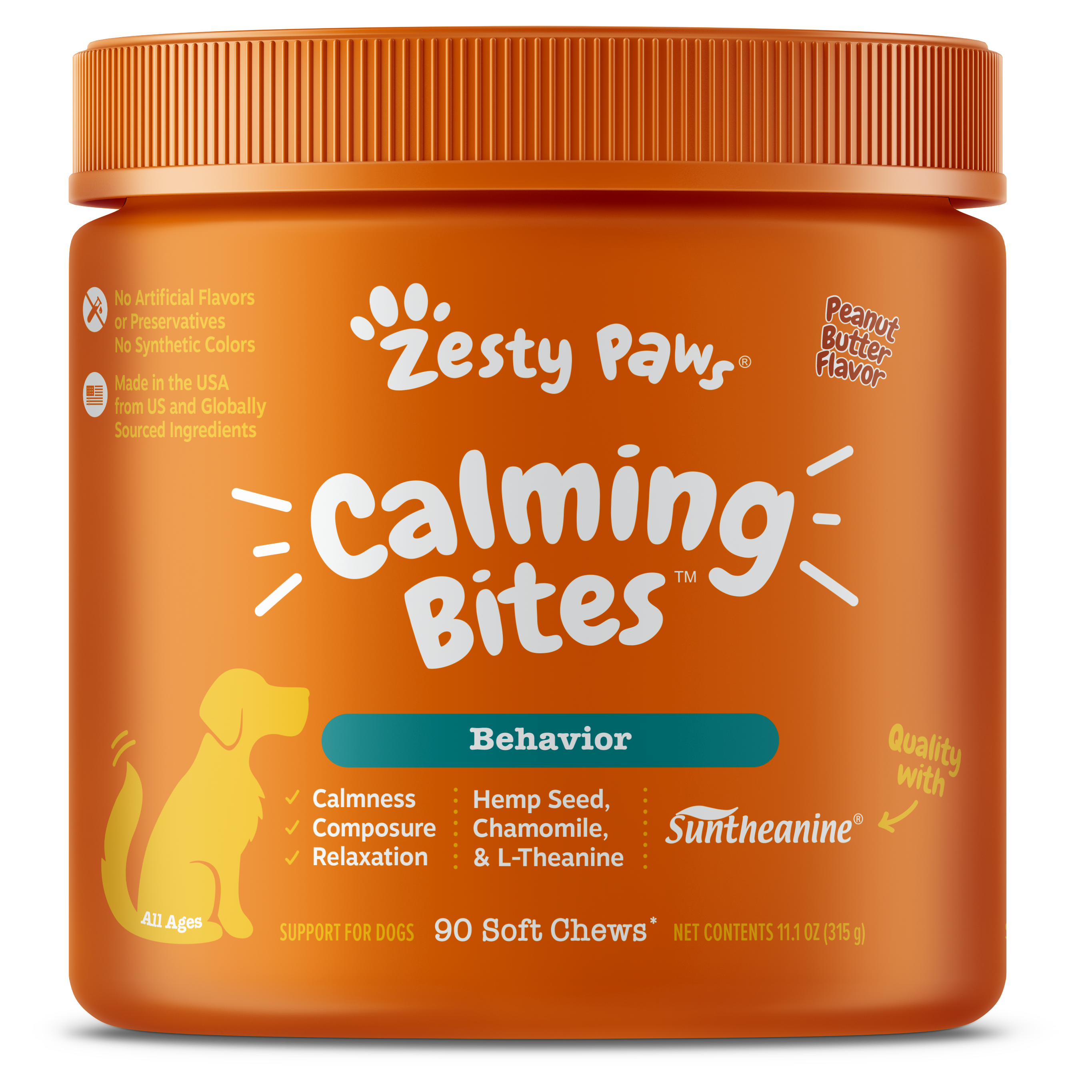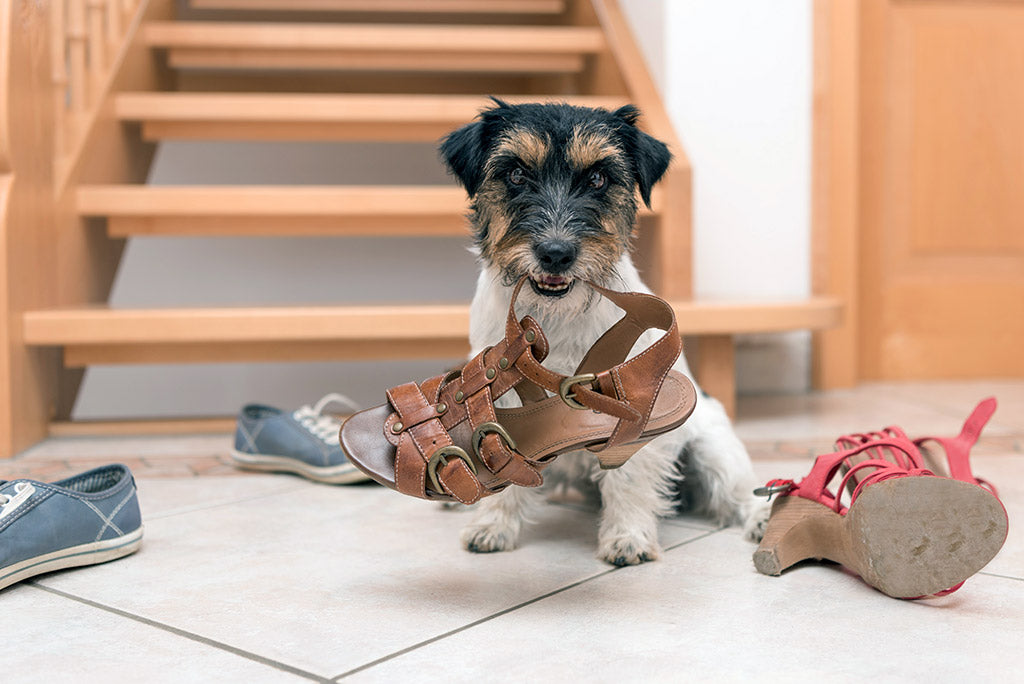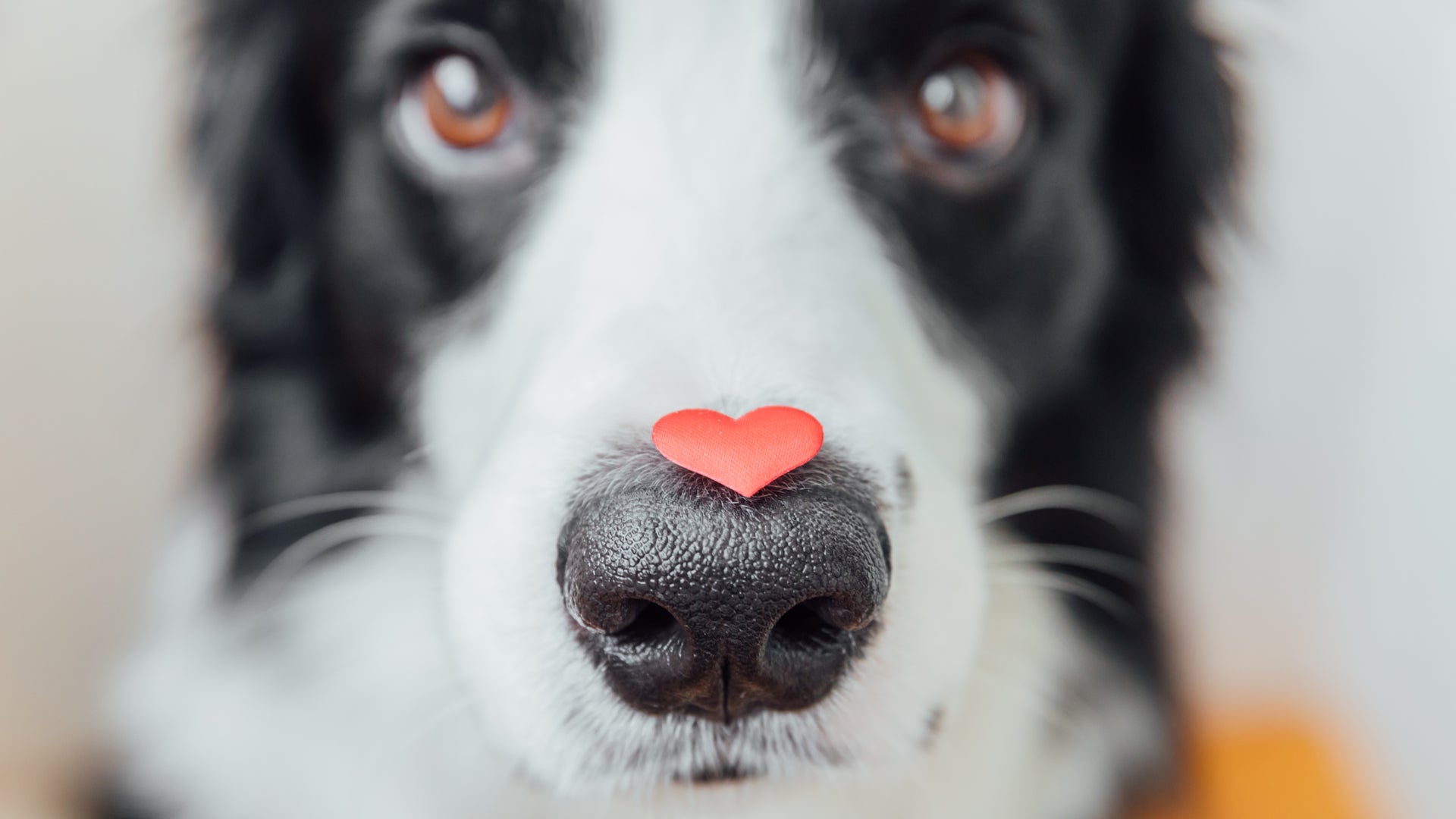
One of the most-asked questions that dog professionals get is, “how do I stop my dog from barking all the time?” If you’re someone who would ask that, take a deep breath and relax. We know you love your dog and want to help in any way you can. So we’ve brought you some simple ideas, training techniques, and some very cool products that we think will keep your furry friend firmly out of trouble.
So let’s dive in and see what they are!
Keep Your Canine Calm!
One thing to consider right from the start is that calm dogs are much less likely to be big yappers! So the trick is to find ways to get them into that state of mind. And it can be easier than you might think.
Some barking is acceptable as it’s a natural behavior for dogs and one of the ways they communicate. And how much your dog barks will be determined by breed, temperament, and environment. Some naturally bark more than others.
But bottom line, if your pooch is just trying to tell you that someone’s at the door or that their collar’s caught in something, but stops once they see you’re taking care of the problem, this is acceptable behavior. However, if your dog won’t stop once you tell them, you might have a problem.
Excessive barkers are not only annoying to you and your family, but they also tend to annoy the neighbors. And you don’t want any of that!
So, what works to calm those canines?
Exercise
Your dog may bark a lot if they have pent-up energy or feeling bored. So challenge your pup with more exercise. That’s a pretty easy fix for most people. Need any ideas for how to do that? Check these out:
- Daily walks – a must for most dogs. If they aren’t enough, make them more challenging by riding a bicycle while you walk them, or by giving them a backpack to carry, or by walking them up hills. You’re going to get fit, too! Win-win!
- Take a trip to a local dog park or doggie daycare center to help your dog run around and meet friends. These places are so much fun!
- Try some mental challenges. These can be anything from interactive toys to sports such as herding, agility, obedience games, tricks, nose work, dock diving, lure coursing, flyball – and more!
- If your dog is a water baby, take your pup out for a swim.
Swaddling Wraps
If you’ve never heard of stress wraps such as Thundershirts you might want to take a look at them. They’re a simple coat that you wrap around your pup tightly so they're swaddled like a baby.
The swaddling action itself is what calms the dog. Many people have found this simple wrap extremely helpful for their worrywarts!
Classical Music
Did you know that certain types of classical music have been scientifically proven to calm both dogs and cats? Well, the inventors of the “iCalmPet” music system have made this claim and quote an 80% success rate! Not bad!
They tested different types of classical music to see which ones calmed the most. Once they narrowed it down they made a small Alexa-type speaker with a slot for different music SD cards. Simply push the card in and hit play and the magic happens. In addition, different SD cards help with different issues. One helps with separation anxiety, one with thunderstorms, etc.
Calming Supplements
Another great way to help your best friend is to give them a functional dog supplement. Tasty chewables and functional liquid supplements may support your pet’s relaxation, calmness, and composure may be very beneficial.
Look for ingredients such as chamomile, l-theanine, l-tryptophan, and melatonin that are known for their calming properties. If you know a stressful time is coming up (think vet or groomer visits, car rides, storms, or fireworks), giving your nervous nellie a supplement is a great option.
Hollow Rubber Chew Toys
Problem barking can occur right after doggie moms and dads leave home for the day. But here’s a great solution to that. Hollow rubber chew toys such as Kongs can be used to take your dog's mind right off the fact that you’ve left.
Simply stuff the toy with moistened kibble (or use your can or raw food) and pop it in the freezer before you go to bed. Voila! The next day you’ll have a frozen stuffed chew toy that your dog can figure out and munch on for breakfast. And while your dog is doing all that, they're lying down and being quiet. Kongs can be filled with a multitude of food and treats and frozen.
Simple Training Techniques
Here are two simple but useful training tips that are invaluable additions to your toolbelt:
The Quiet Command
Territorial or excitable dogs can be calmed by learning when to be quiet on command. When your dog is barking inappropriately, take a yummy treat and hold it in front of them to ensure that your dog can smell it. Dogs can’t smell and bark at the same time so that helps immediately.
As you show the treat, say “Quiet” or “Shush” (choose whichever you prefer but stick to the same word). As soon as the yapping stops – and only when it stops – give the treat. Repeat this regularly and your pup will soon learn what your command word means.
More Manners, Please
If your dog is barking for attention or because they want something, ignore your pup until they stop! This is hard to begin with as they'll bark harder to get you to pay attention – but be patient. The secret to success is to wait for five seconds of quiet and then reward that quiet with attention or the gift of what they want (maybe dinner, a favorite toy, or a walk).
Repeat every time your dog barks this way so that they learn that they'll only gets your attention when they are being quiet.
Better In Than Out!
If you have a busy body who loves to chat, never leave your dog outdoors where they can see everything that’s happening in the street. They'll just bark more and the neighbors will hear it more. Your gossiper will be much better off inside with you!
If you have to leave them to go out, put them in a room away from the action if possible. Turning on the radio or TV will also help to block outside noise. Keep outside time as a special time that you have together.
Dogs That Bark A Lot Are Common
If you have one of these, you're not alone. But it's a problem that can be overcome. However, it's important to only use these techniques when your pooch is barking excessively or out of habit.
If you’re ever in doubt as to what’s causing your baby to bark, or if aggression is involved, call in a canine professional. You committed to care for your dog’s needs when you brought them home and that includes helping with any behavioral challenges.
We also discourage you from using items such as bark collars, citronella collars, ultrasonic devices, spray bottles, or shakers. There can be bad side effects from using any of these methods.
We’d Love To Hear From You!
If "how do I stop my dog from barking?" has been your burning question, we hope you love our suggestions for controlling the problem, and we’d love to hear from you if you’ve tried any of them and they’ve worked.
Or maybe you have some more ideas that would help other doggie parents with their yappers! If you have any questions or comments, please feel free to share them below or contact us at (800) 940-1972 or bark@zestypaws.com.











